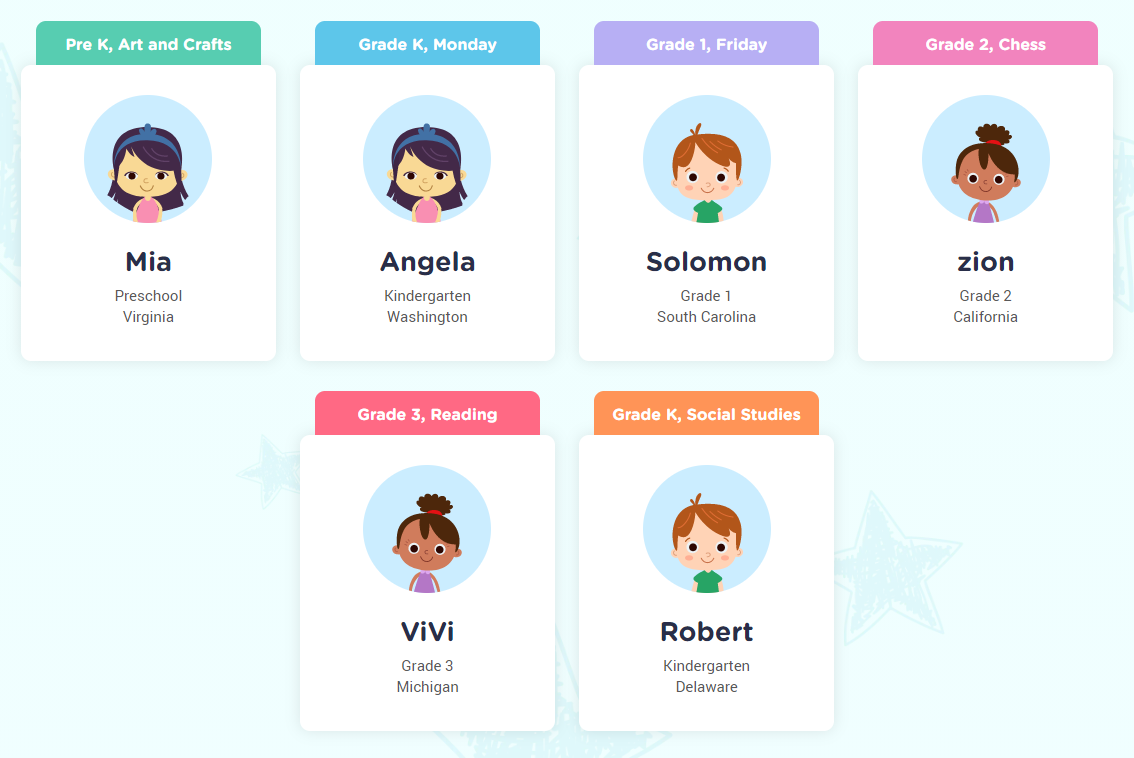Comprehension skills Easy Worksheets for Ages 3-4
4 filtered results
-
From - To
Discover our collection of comprehension skills worksheets designed specifically for children aged 3-4. These easy-to-download and print worksheets help young learners grasp fundamental language concepts early on. Each fun activity is carefully crafted to boost vocabulary, develop listening and understanding abilities, and inspire curiosity. Perfect for preschoolers, our engaging exercises make learning enjoyable and effective. With vibrant images and age-appropriate content, Kids Academy worksheets provide the foundation for confident and capable readers. Start your child’s literacy journey today with our user-friendly resources, tailored to foster essential comprehension skills in the most delightful way possible.
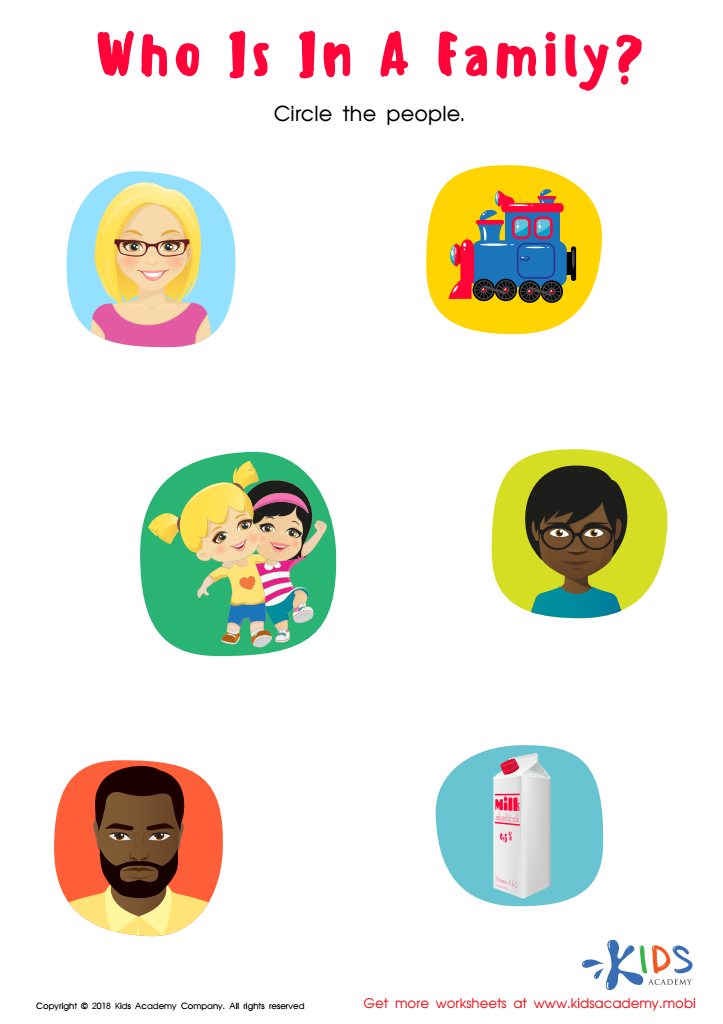

Who Is in a Family? Worksheet
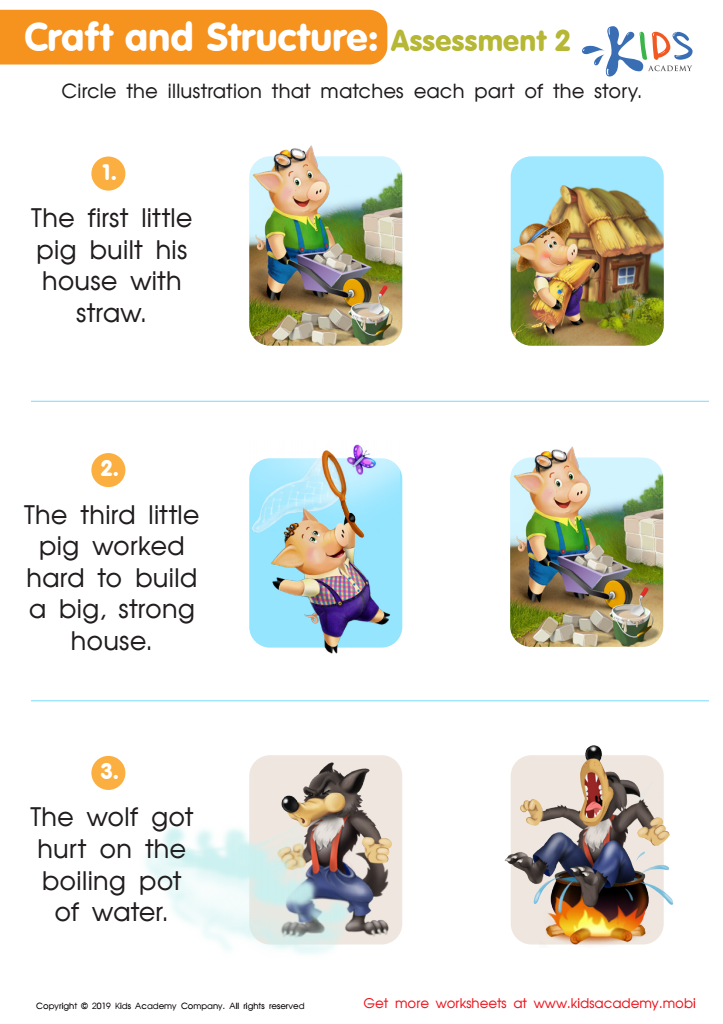

Craft and Structure: Assessment 2 Worksheet 2
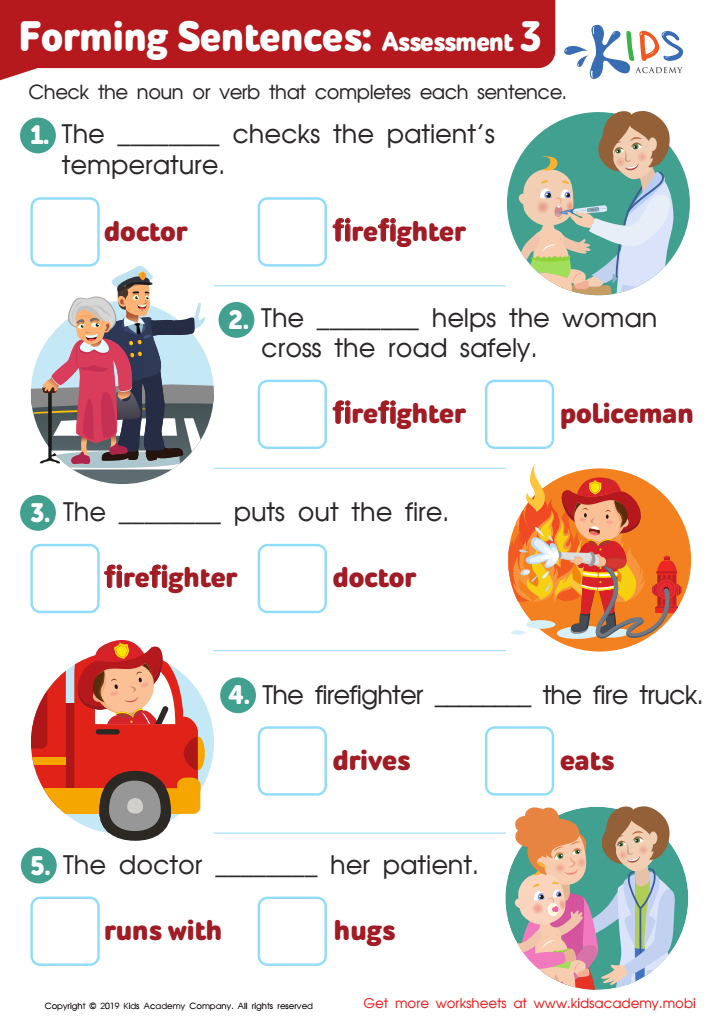

Forming Sentences: Assessment 3 Worksheet
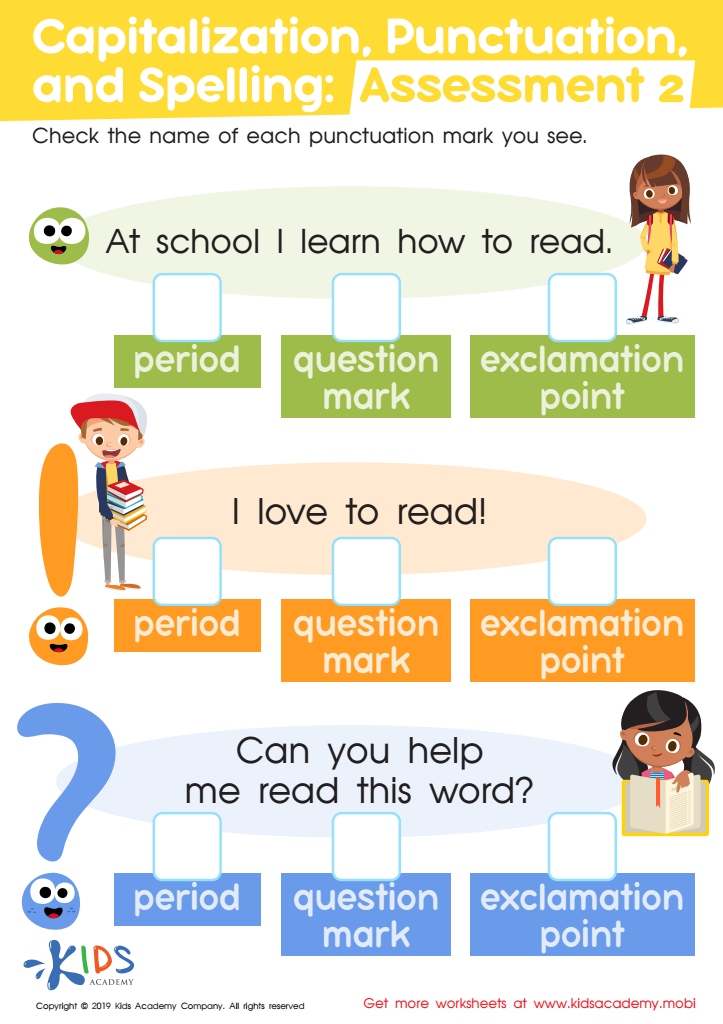

Capitalization. Punctuation. Spelling: Assessment 2 Worksheet
Comprehension skills are fundamental for children aged 3-4 as they lay the groundwork for future learning and cognitive development. At this early stage, comprehension isn't just about reading texts—it's about understanding and processing spoken language and interpreting the world around them. When parents and teachers focus on developing these skills, they are helping children improve their listening abilities, cogent thinking, and reasoning.
By enhancing comprehension skills, children become better equipped to follow instructions and express their own ideas and experiences. Activities such as reading stories, engaging in conversations, and playing educational games build vocabulary and an understanding of narratives and sequences. These activities stimulate curiosity and encourage questions, making learning feel like an adventure.
Moreover, strong comprehension skills promote social-emotional growth. They help children understand their own feelings and those of others, fostering empathy and better interpersonal relationships.
Teachers and parents can nurture these skills in fun, meaningful ways through interactive discussions, story play, and exposure to new and interesting topics. Investing this effort at an early age sets a constructive path for school readiness and lifelong learning, making children enthusiastic and competent learners.
 Assign to My Students
Assign to My Students









